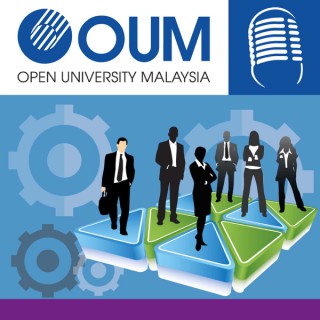
(Podcast) Human Resource Management
Follow (Podcast) Human Resource ManagementHuman Resource Management is one of the courses offered by the OUM Business School at Open University Malaysia (OUM). This is a core subject for students of the Bachelor of Management and Bachelor of Business Administration programmes. It is also a fundamental major course for students taking the Ba…
- Jun 11, 2015 LATEST EPISODE
- infrequent NEW EPISODES
- 7m AVG DURATION
- 10 EPISODES
More podcasts from Open University Malaysia
Latest episodes from (Podcast) Human Resource Management

Episode 8 discusses incentives and benefits. Students will be exposed to some aspects of incentives such as the importance and advantages of an incentive programme, the characteristics of an effective incentive plan and the types of incentive plans. Apart from that, students will also be exposed to benefits such as the characteristics of effective benefits and types of benefits that can be offered by the employer to their employees.

Episode 9 discusses two main topics which are employee's rights and discipline. Discussion begins with the rights of employees and employers. Next, students will be exposed to issues related to employee discipline such as recognising problematic workers and the types of misconduct which exist in an organisation, as well as looking at some disciplinary approaches that can be practised. Apart from that, students are exposed to misconduct outside of an organisation and the techniques used to solve them. Disciplinary issues, alternative conflict resolution procedure and the procedure for termination of contract due to misconduct will also be explained. The end of the topic gives some guidelines in carrying out a fair disciplinary action. After understanding employee's rights and discipline, the next discussion will touch on the dynamics of employee relations.

Episode 10 talks about workersÊ union in Malaysia and why employees participate in unions, as well as the functions and structure of a union. The discussion ends by looking at the bargaining process, which is usually carried out when issues arise in trade.

Episode 4 touches on human resource planning and the activities involved in recruitment. It discusses how an organisation tracks the movement of its employees into, within and outside of its organisation. The second part of this topic discusses how an organisation attracts potential candidates to join its organisation.

Episode 5 discusses how an organisation selects qualified candidates to join its organisation. The selection method involves the process of information gathering of candidates, and the process of deciding whether the candidate would be accepted or rejected for the post.

Episode 6 elaborates on the performance evaluation process, the sources and methods to evaluate employee performance and performance discussion process. Performance evaluation also explains a few errors made by managers or supervisors when evaluating employees.

Episode 1 is an introduction to human resource management. Discussion starts with the definition of human resource management. Students are then exposed to the importance of human resource management and the environment of human resource management in Malaysia. Aside from that, students are also exposed to the five main functions of human resources, as well as the challenges and issues faced in human resource management.

Episode 2 discusses the legal environment in Malaysia which affects human resource management practices in Malaysia. Students are exposed to some major Acts which are closely related to human resource management practices. Among the Acts discussed are the Employment Act 1955, Industrial Relations Act 1967, Trade Unions Act 1959, Occupational Safety and Health Act 1994, Employees' Social Security Act 1969, Human Resource Development Act 1992, Employee Provident Fund Act 1991 and Workmen's Compensation Act 1952.

Episode 3 explains job analysis and job design. In job analysis, the aim and methods of analysis will be discussed. The results of the process are job description and specification. The second part of this topic discusses how an organisation designs jobs to cater to its establishment and employees.

Episode 7 compensation discusses the types of compensation offered by an organisation to its human resources so that employees are more motivated to work. Compensation also touches on three significant components in determining the salary scale of an organisation, which are internal equity, external equity and individual equity; as well as factors that influence the wage level.

















